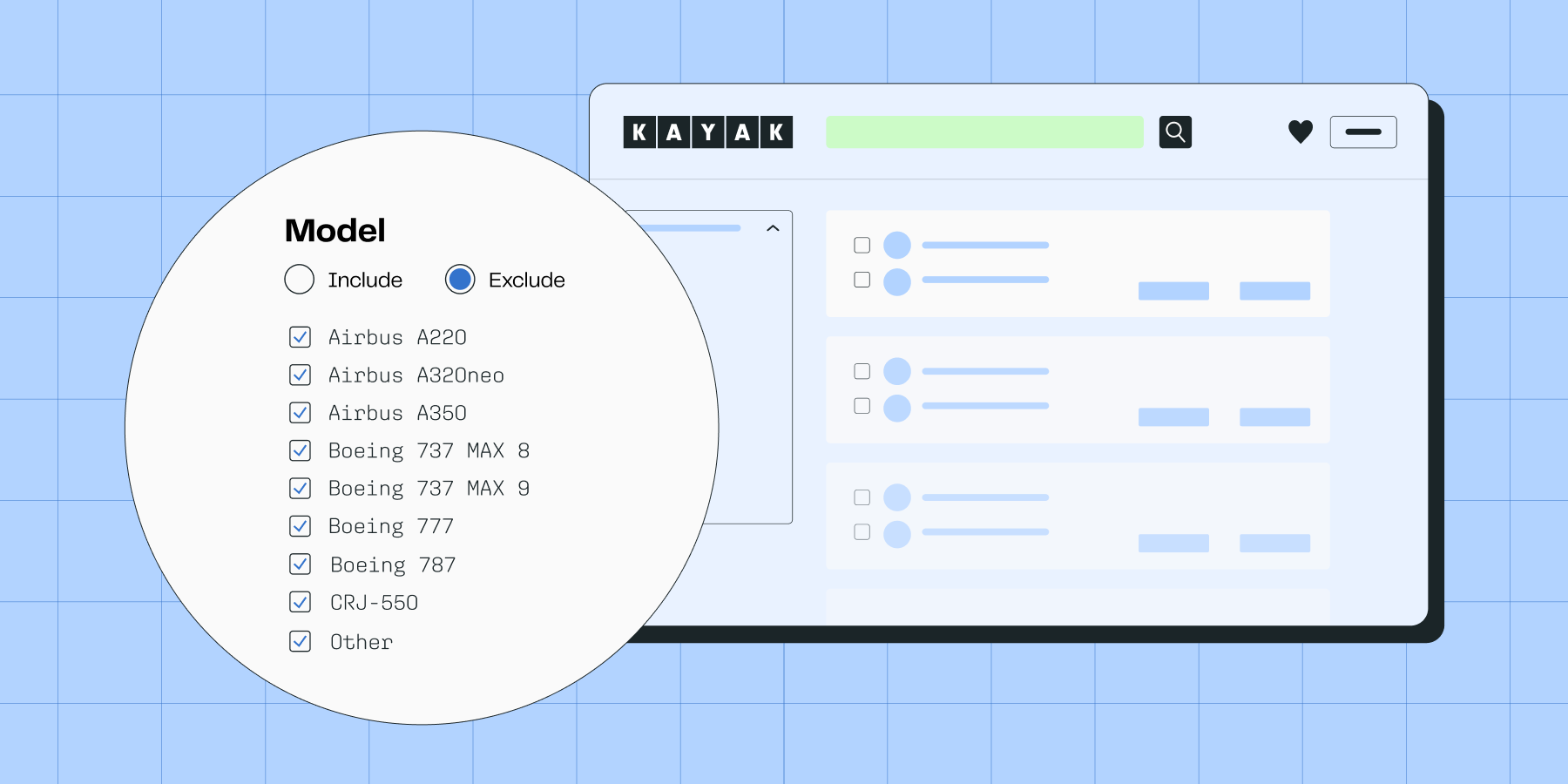
Boeing isn’t having a good time right now.
And neither were the passengers of Alaska Airlines flight 1282, whose emergency exit door fell out in January, forcing the pilot of the Boeing 737 Max to conduct an emergency landing.
Fortunately, there were no casualties.

In the following months, two whistleblowers relating to cases against Boeing have passed away, and a third testified to Congress that he feared for his life. All three whistleblowers have warned that Boeing has serious safety issues.
Conspiracy or not, Kayak "understood the assignment" and did something about it.
Understanding user sentiment
The sentiments all point toward the same conclusion: Users have become increasingly interested in avoiding Boeing aircraft until there is some type of resolution.

Internova Travel Group, which represents over 100,000 travel agents worldwide, has seen a similar uptick in customer queries about plane models.
An executive at the company, Peter Vlitas, states that consumers who are “aware of the situation” are now asking agents which planes are impacted by the Boeing issues.
Travel guides like TimeOut instantly began publishing guides on how to avoid Boeing planes, and cancellations of all types of air travel plagued travel agents and airlines in the weeks following the January incident.
Kayak’s aircraft filter feature
As announced in a blog post from March 2024, Kayak will now allow users to select which type of planes they’d like to include (or exclude) from their travel bookings.
“Now our aircraft filter, which had been gathering dust for the most part, is once again getting some attention.”

As explained in the post, the feature itself isn’t new. All Kayak did was (due to the events in January) temporarily move the filter higher up on the sidebar in anticipation of user needs.
Steve Hafner, the CEO of Kayak, goes on to say, “While the overall fraction of users filtering the 737 remains small, usage increased following the Alaska Airlines incident in January (15x compared to month prior from a low baseline), and it has since decreased until this past week (to 10x compared to Dec 2023).”
What Kayak did right
This is a great example of companies reacting to user sentiment. (Silver medal goes to Airbnb for focusing on “staycations” during the Covid-19 pandemic.)
Some of the things that Kayak did right:
Anticipated user needs: By recognizing growing concerns about the Boeing 737 Max, Kayak responded proactively by ensuring that travelers could make more informed decisions without needing to request such a feature.
Leveraged existing functionality: Instead of building a new feature from scratch, Kayak repurposed and promoted its existing aircraft filter, showcasing a clever use of resources to meet immediate user demand.
Made data-driven decisions: The decision to move the filter higher up in the interface was based on observing user behavior and engagement, ensuring that the change had maximum impact with minimal disruption.
Maintained flexibility in product design: Kayak adapted its user interface based on real-world events, demonstrating a willingness to iterate and update the user experience based on timely external factors.
If you want to be more like Kayak, and use data to make better decisions, try using Statsig.
Get started now!

The opinions expressed in this article are mine only.



